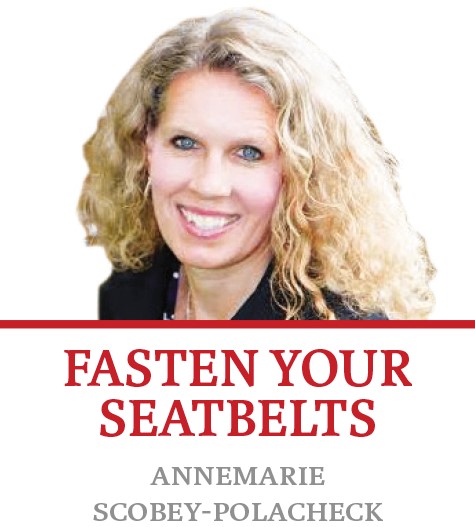Fasten Your Seatbelts
In 2021, the American Academy of Pediatrics, The American Academy of Child and Adolescent Psychiatry and the Children’s Hospital Association declared a National State of Emergency in Children’s Mental Health.
Studies show rates of depression and anxiety in children have shown a steep increase over the past two decades, and specifically the past five years. According to the Centers for Disease Control, among high school students in 2021, 42 percent of students felt persistently sad or hopeless, and 22 percent considered suicide.
The coalition called for policy change in all levels of government to address the crisis, including increasing funding for school programs and community-based systems of care for families in need of behavioral health.
While the coalition didn’t call out for help from the faith community, we as a Church must accelerate our efforts to serve our vulnerable children and young adults, and provide them with a faith community focused on the health of the whole person. Built into our Scripture and tradition is a wealth of tools that, when presented with contemporary language, and an eye to real-world application, can complement the expertise offered by therapists and other mental health professionals.
Fear and anxiety are age-old issues, and Jesus was ahead of his time in his approach: “Therefore I tell you, do not be anxious about your life, what you will eat or what you will drink, nor about your body, what you will put on. Is life not more than food, and the body more than clothing?” (Matthew 6:25) Jesus’ example of prayer, service to the poor and a focus on love and forgiveness as the way to healing are a blueprint for strong mental health practices.
Service opportunities: Helping others stimulates the hormones oxytocin, serotonin and dopamine, and has the effect of boosting our mood and counteracting the effect of cortisol, the stress hormone. A 2018 study in the Journal of Adolescence found that teens who regularly helped strangers reported higher self-esteem one year later. Teens who reported only helping friends and family did not report the same level of emotional change.
Dr. Laura Padilla-Walker, one of the study’s authors, in a 2018 interview with National Public Radio, noted the benefit to teens on leaving their comfort zone. “Helping a stranger is more challenging,” she said. “And when teens take this risk, they feel more competent.” Just as Jesus demonstrated with the washing of his disciples’ feet before the Last Supper, we cannot in good conscience invite our young people to church if we are not providing a regular opportunity for them to serve.
Prayer and Meditation: Researchers are now able to better quantify what so many of our great Catholic mystic saints have taught us — the value of being still. St. Francis of Assisi said it well, “Where there is rest and meditation, there is neither anxiety nor restlessness.” While discussion of mindfulness and meditation in the secular community does not carry with it a recognition of connection with the divine, a study publish in the journal JAMA Psychiatry in late 2022 found that people diagnosed with generalized anxiety disorder saw a 20 percent reduction in their symptoms after participating in a mindfulness-based stress reduction program for two months. Whether it’s teaching our young people how to make good use of the few minutes of quiet after Communion or sharing with them skills to meditate on their own, equipping teens with this powerful, ancient tool is part of our responsibility.
Mass Attendance: According to the Center for Applied Research in the Apostolate, about 55 percent of American Catholics went to Mass every Sunday in 1970. Right before the pandemic, the number was 21 percent, and now, Villanova University’s Center for Church Management is projecting a 12 percent rate for the next few years.
With fewer families attending weekly Mass, teens have less of an opportunity to hear a phrase from a psalm that may offer comfort, share a sign of peace with a sibling they may need to reconcile with, or be challenged by a Gospel directive. Studies have repeatedly shown that weekly or near-weekly church attendance is linked to lower levels of depression and longer life expectancies.
In a study titled “Religion and Depression in Adolescence,” University of North Carolina researchers Jane Cooley Fruehwirth, Sriya Iyer and Anwen Zhang focused on 13- to 18-year-olds and designed the study to control for the differences of family stability and the teen’s mental health. In a 2019 interview with Shankar Vedantam from NPR’s Hidden Brain, Fruehwirth, an economist, said, “Increasing religiosity by one standard deviation — which is from not going to church at all to attending church once a week — decreases the probability of being at risk for moderate to severe depression by as much as 20 percent.”
We, as a Church, must take a long look at ourselves to determine why families are no longer filling our pews. Do we provide relevant messages in homilies that are connected to the struggles of ordinary people? Does our music speak to and uplift our young people? Do we provide a welcoming and nonjudgmental atmosphere, where all people can come as they are? Our Church is in crisis and so are our young people. We are called to self-examination and to change.
We need each other to survive.

